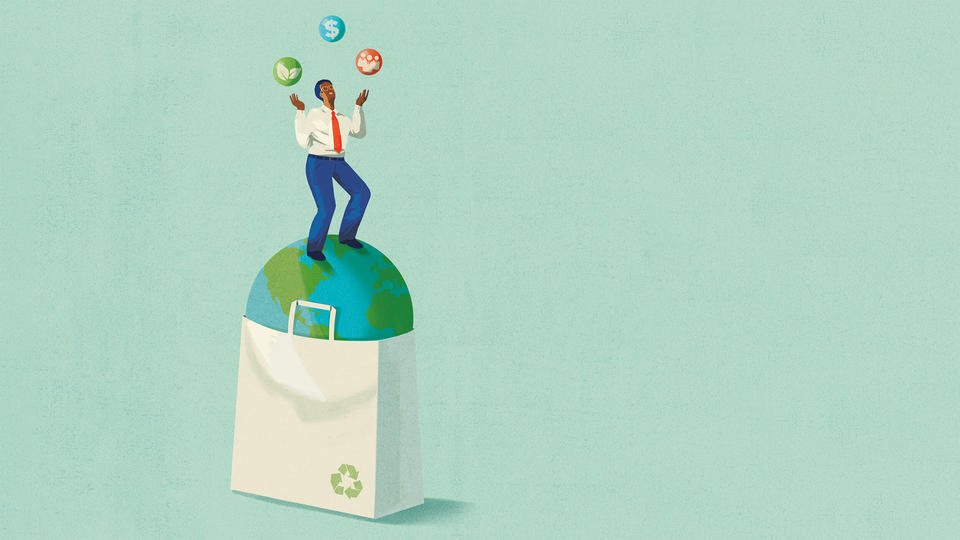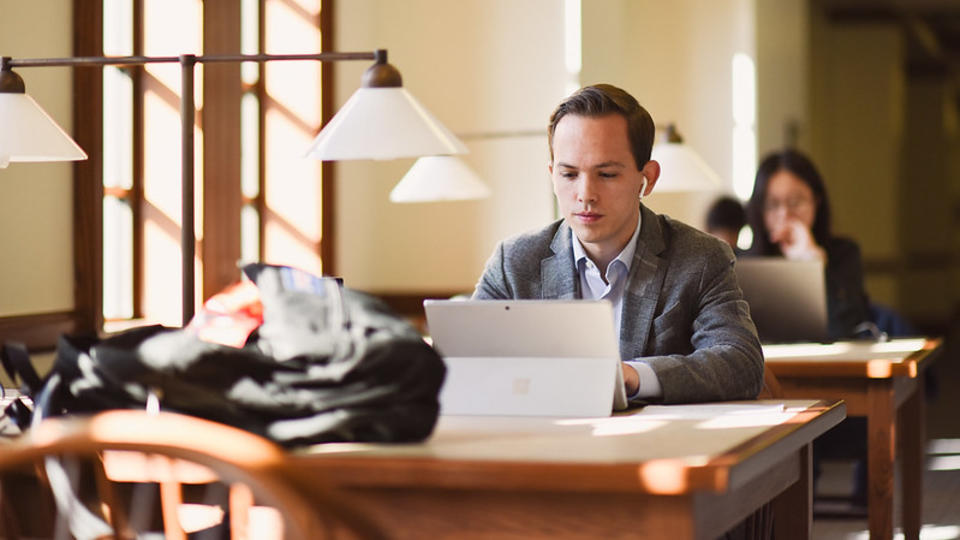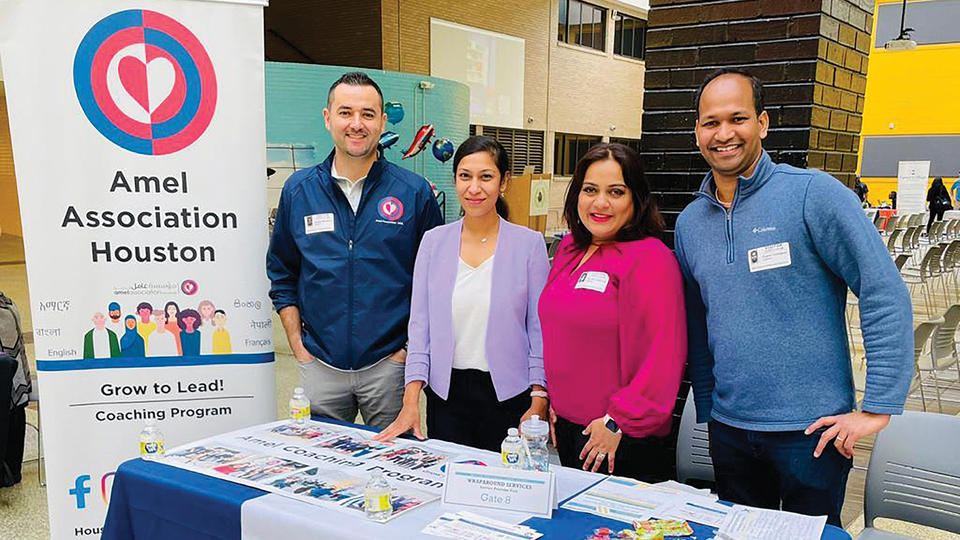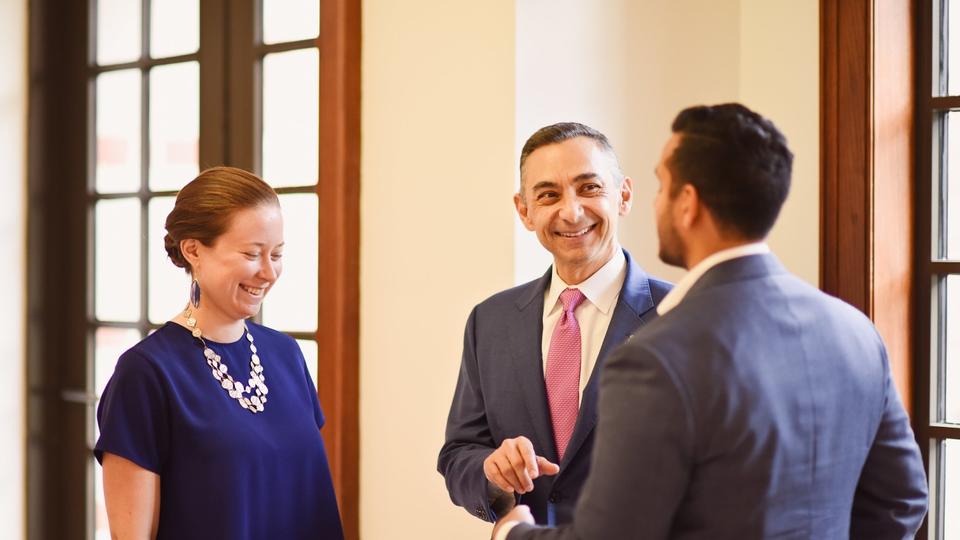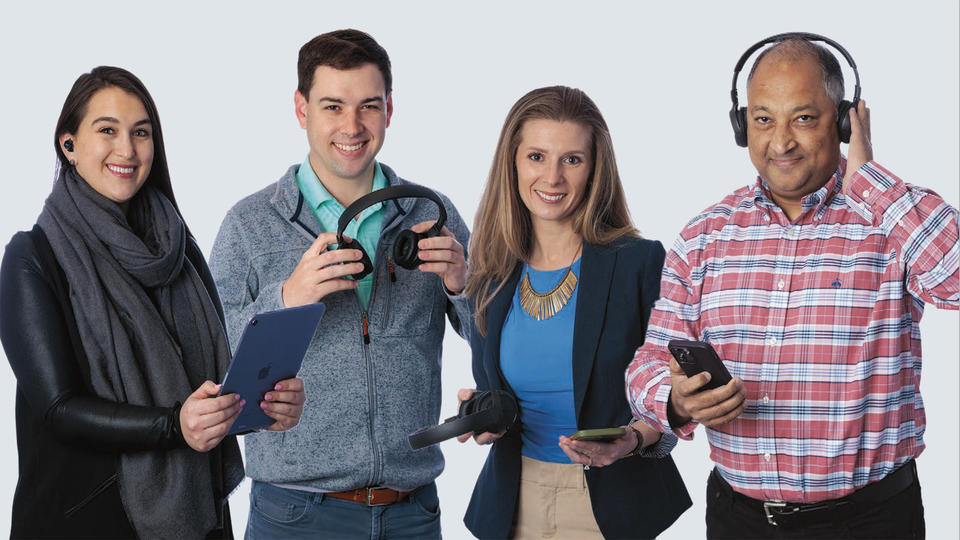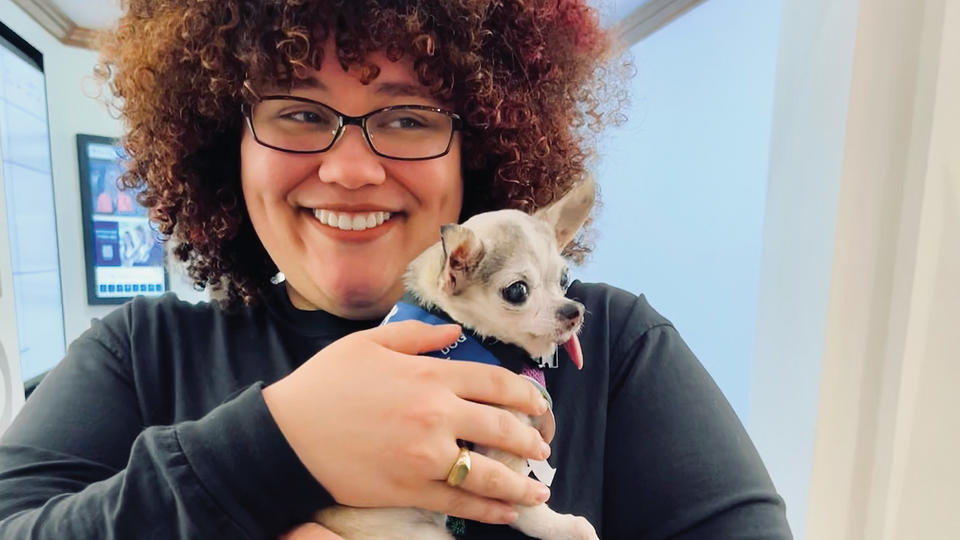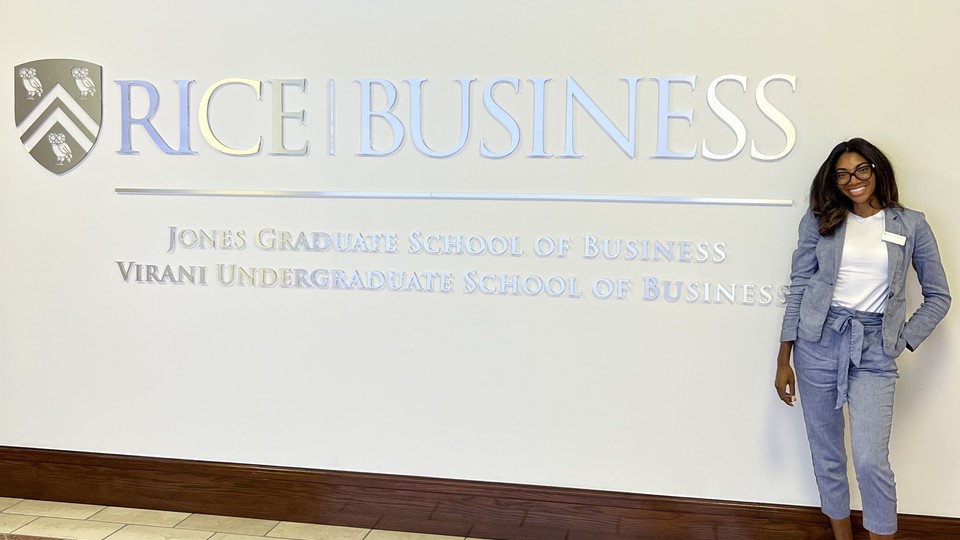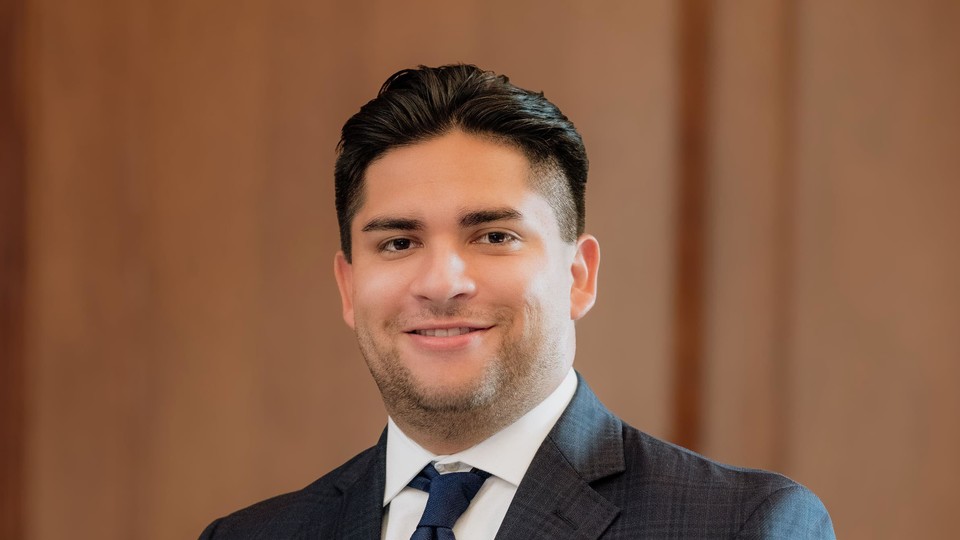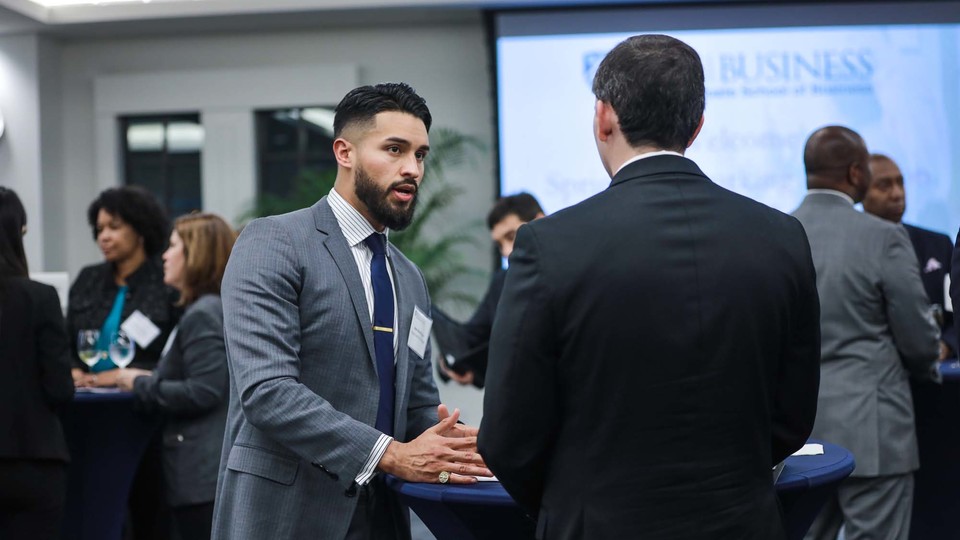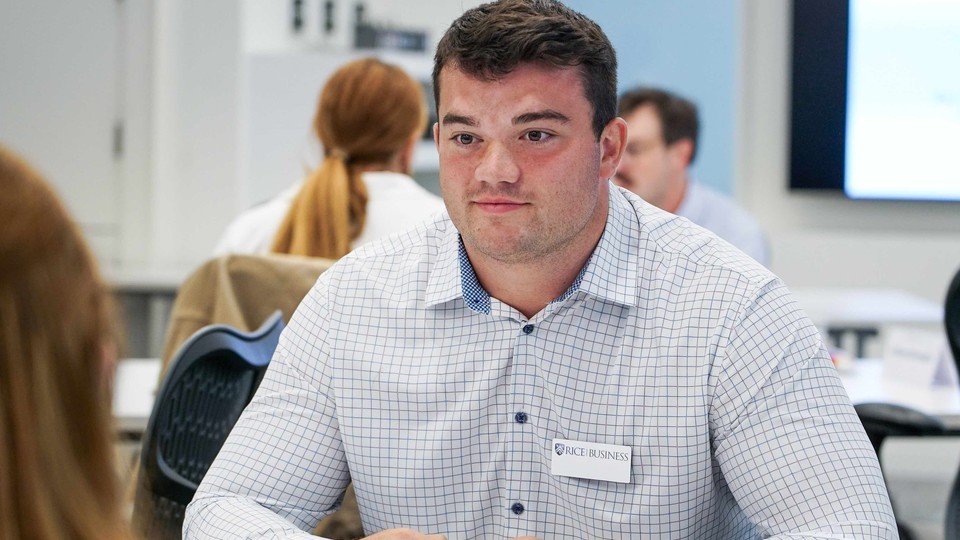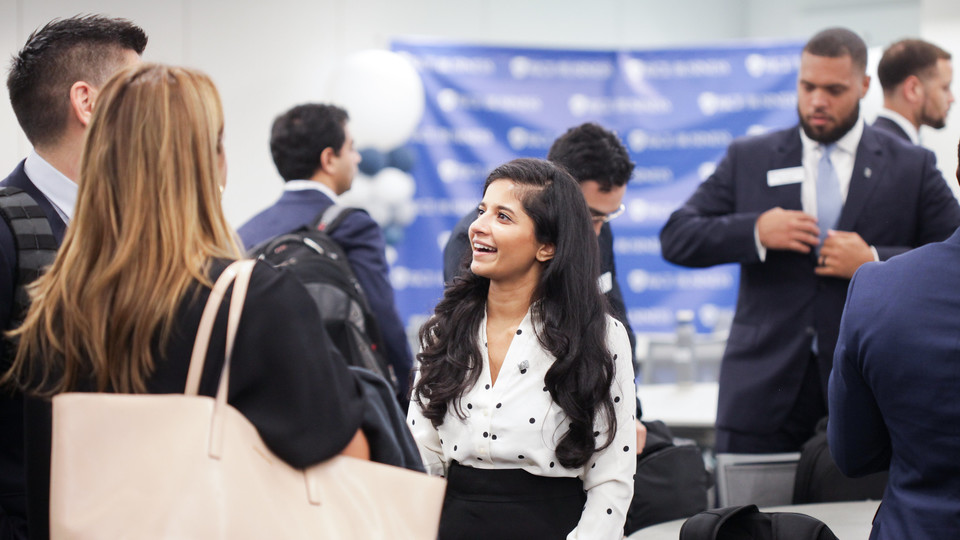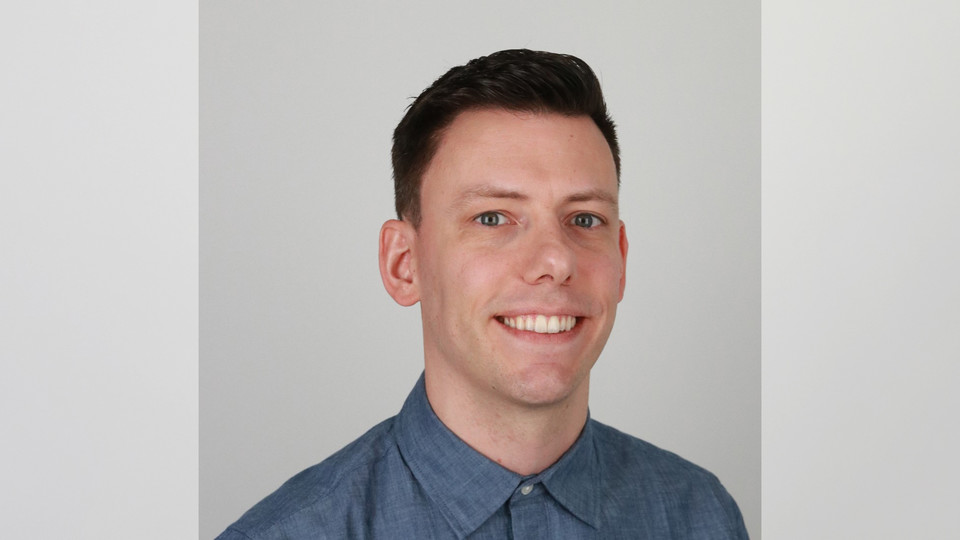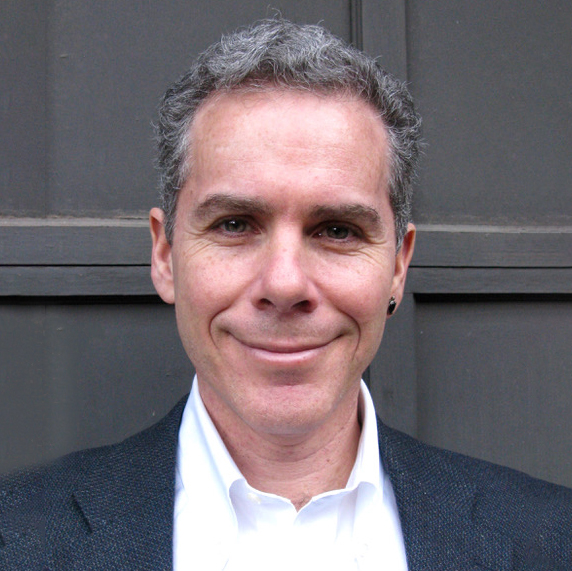
Our Contributors
Meet the contributing writers to this edition of Rice Business Magazine
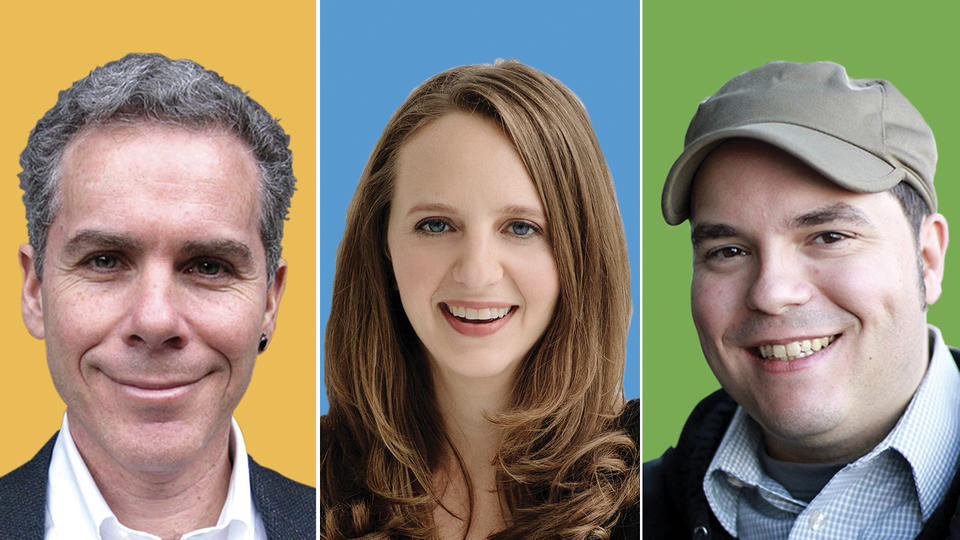
As writers, what are you reading?

Alexander Gelfand
I’m currently re-reading “The Iliad.” I read “The Iliad” and “The Odyssey” in college 100 years ago, and I love those epics so much that I reread them every few years, trying out different translations as I go. Homer — or whoever actually wrote them — was a narrative genius.
Learn more about Alexander
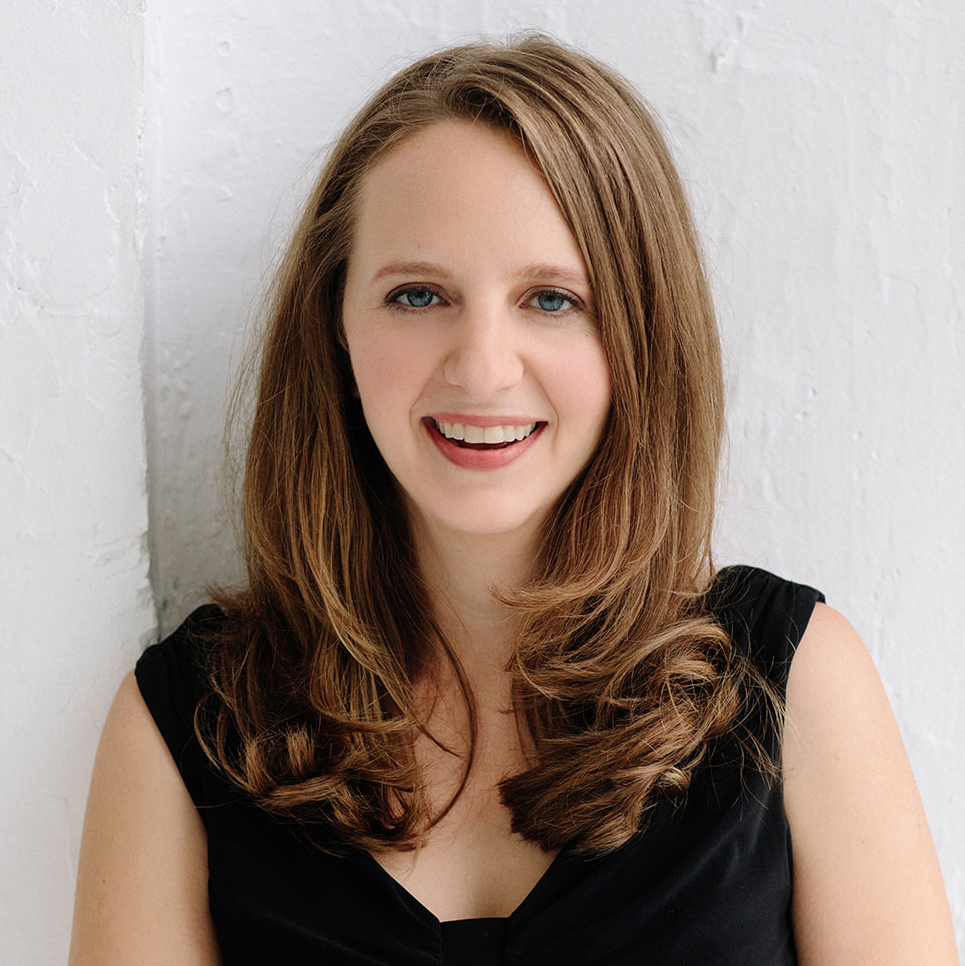
Deborah Lynn Blumberg
Topping my nightstand pile (which includes inaugural addresses of the presidents of the U.S. and a thriller, “Wrong Place Wrong Time”) is Nellie Bly’s “Around the World in Seventy- Two Days and Other Writings.” Investigative reporting by the late-1880s journalist prompted significant social reforms.
Learn more about Deborah
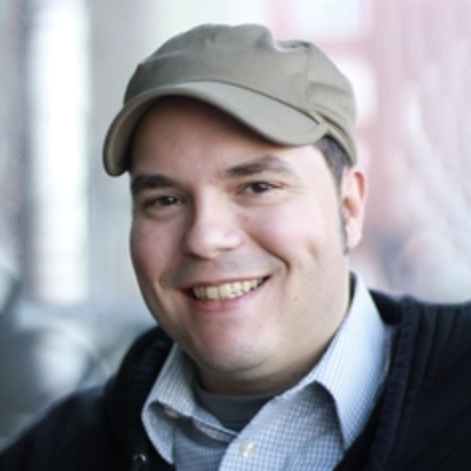
Larry Clow
I’m finally tackling “The Path to Power,” the first volume of Robert Caro’s biography of Lyndon Johnson. The level of research Caro put into this epic is stunning, and the writing is clear and sharp. There’s so much to learn from Caro, both in terms of history and craft.
Learn more about Larry
Dean
Peter Rodriguez
Executive Director
Marketing and Communication
Kathleen Harrington Clark
Editor-in-Chief
Maureen Harmon
Editors
Weezie Mackey
Scott Pett
Design Director
Bill Carson Design
Marketing
Kateri Benoit
Tricia Delone
Dawn Kinsey
Annie McDonald
Keleen McNamara
Wafa Mohamed ’24
Michael Okullu
Kevin Palmer
Ananya Zachariah
Contributing Writers
Dildora Ahmedova ’23
Deborah Lynn Blumberg
Larry Clow
Alexander Gelfand
Maureen Harmon
Weezie Mackey
Proofreader
Jenny West Rozelle
Contributing Photographers
Bill Carson
Troy Fields Photography
An Le
Annie McDonald
Contributing Illustrator
Fabio Consoli
Printing
RRD Houston
Keep Exploring
In Memoriam
A tribute to recently deceased members of the Rice Business family: Michael Friezo, Liana Hamm, Jim Chan and Thomas O’Hagan DuPree.

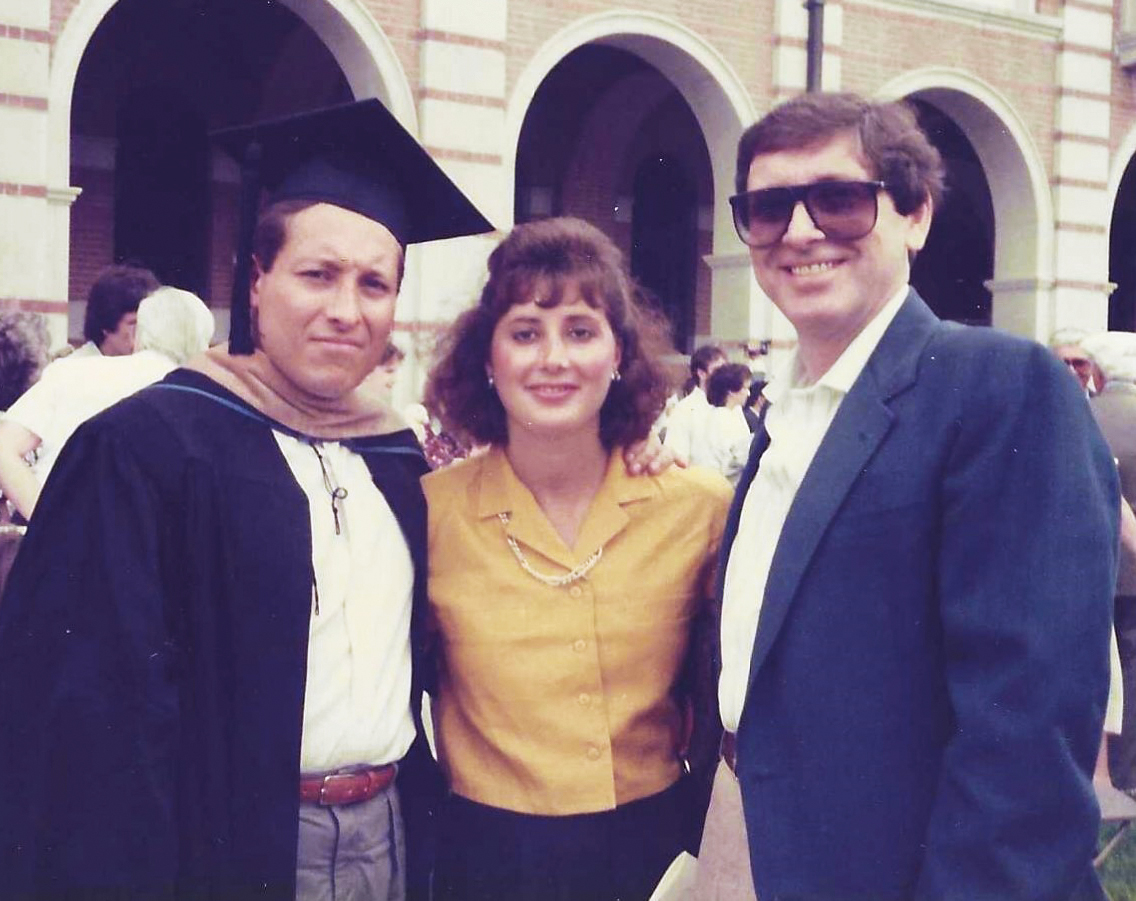
Michael Friezo ’88
Co-founder, FLOW Partners
Michael Friezo ’88, a finance executive and co-founder of the oil and gas analytics company FLOW Partners, passed away July 15, 2022, surrounded by his family, after a 14-month battle with pancreatic cancer. He was 59.
Although he was a Jersey boy, Friezo wholeheartedly embraced Texas when he moved there to attend Texas Christian University for his bachelor’s degree. “It was a culture shock,” says Friezo’s daughter, Lauren, who spoke on campus at the annual Scholarship Luncheon honoring donors and recipients. “But instead of worrying about being a fish out of water, my Dad knew that through empathy, curiosity, compassion and understanding – a fish can relate to any other fish.”
Friezo earned his MBA at Rice Business during the oil bust of the late 1980s, graduating a year after the Black Monday stock market crash when the Dow Jones Industrial Average dropped more than 22 percent in a single day. “Houston was a crazy place to be then, because of the downturn,” recalls Friezo’s wife, Michele. The pair had just married, and when they moved to Houston, she struggled to find work despite her own finance background. “It was an interesting time.”
Friezo credited his Rice Business education with instilling the leadership skills that carried him through a distinguished 30-year financial career, taking him from Salomon Brothers to Credit Suisse First Boston and then Deutsche Bank, where he ran equity capital markets for the Americas.
Friezo had that ability to understand and motivate others. “He would send article after article based on your skills, interests or opportunities,” says Lauren. “He would recommend books, movies, classes, courses -- all in the spirit of finding more ways to help his people grow, feel valued and be heard.” His #1 recommended book was Meditations by Roman Emperor, Marcus Aurelius. “He found it amazing that the wisdom he expressed almost 2,000 years ago was still applicable today.”
In 2017, anticipating the potential of big data and analytical automation to transform the American energy sector, Friezo founded FLOW with his business partner, Tom Loughrey. FLOW’s quantitative analytics expertise allows users to incorporate high-end engineering into their estimates – even if they have no engineer or technical experience. “That was Michael’s focus for the past five years,” Michele says.
Those who worked with Friezo throughout his career were struck by his inclusiveness, his lack of ego and the respect he showed every member of his team, from executives to the person who cleaned the office when he was there working late. “Michael understood that a great leader isn’t just smart but someone who excites a team around them,” Michele says.
Through deep friendships, mentoring and charitable work, Friezo never made it about himself. He and Michele raised their two daughters, Lauren and Caroline, in Montclair, New Jersey, before moving to Dallas in 2016. Friezo and his family endowed scholarships at Rice Business and Texas Christian University, along with a long list of other charities supporting education, health and socioeconomic initiatives.
Mark Watson ’23, this year’s recipient of the Michael P. Friezo Family Endowed Scholarship at Rice Business, shared his gratitude with Friezo in a letter last year. “Without your gift, I would never have had the opportunity to learn at such a prestigious institution, which has changed my family’s life forever,” Watson wrote.
Since 1990, Friezo and his family have supported Memorial Sloan Kettering Cancer Center, where he received treatment. They donated more than $2 million to establish the Friezo Family Support Fund, which helps alleviate economic concerns for families with children receiving cancer care at MSK. For those who wish to honor Friezo’s memory, the family asks that you consider a donation to the fund. For more information, visit mskcc.convio.net/goto/mpfmemorial.
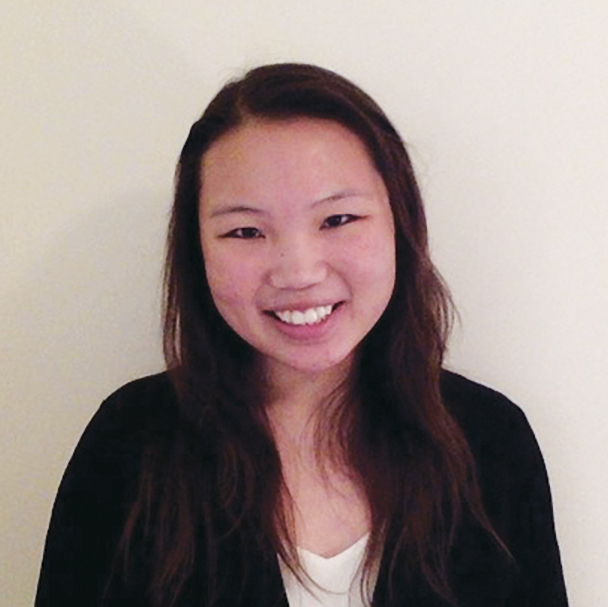
Liana Hamm
Assurance associate
PricewaterhouseCoopers
Liana Hamm passed away Oct. 19, 2022. She was 23. A National Merit Scholar, she earned her B.A. in economics from Rice University, graduating summa cum laude in 2020, and her Master of Accounting degree at Rice Business in 2021. She sat for the CPA exam, passed all parts on the first try and received the Elijah Watt Sells award for her high scores, the highest in the country. Liana interned at OpenStax, the Federal Reserve Bank of Dallas and PricewaterhouseCoopers. She was also a teaching assistant in Financial Accounting at Rice University during 2020. In September 2021, Liana began full-time employment with PricewaterhouseCoopers as an assurance associate, a job she held until her death. Beyond the immense personal loss for her family and friends, the accounting profession has lost a future leader.
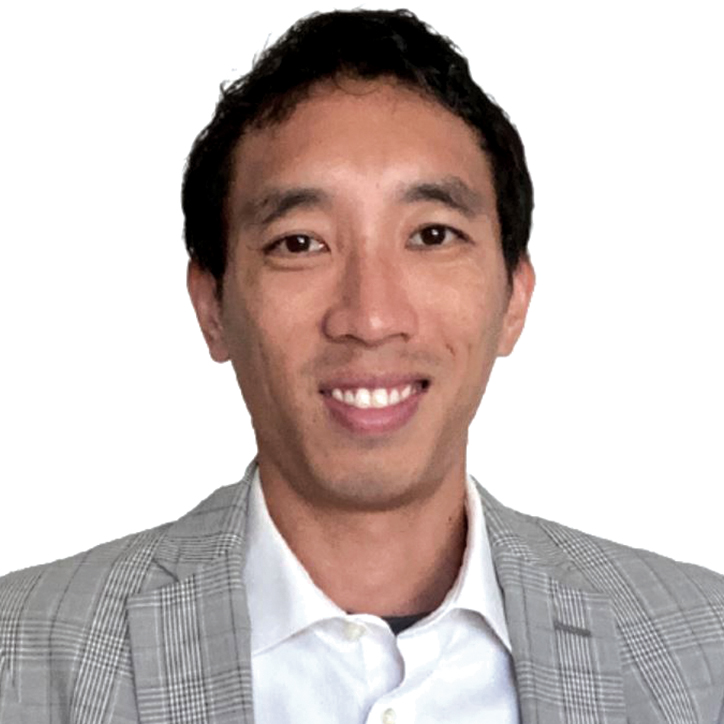
Jim Chan
MBA@Rice
Jim Chan passed away Oct. 12, 2022. He was 40. Jim was born in Grand Forks, North Dakota, and graduated with a degree in industrial engineering from Iowa State University. On top of working full time as a senior supplier quality engineer at BAE Systems, he managed his own Airbnb property and was a licensed real estate professional and a project manager for multiple properties. During his MBA studies, Jim was selected as team lead for his cohort’s capstone project and Global Field Experience in Berlin, Germany. He completed his MBA coursework last summer and was set to graduate in December.
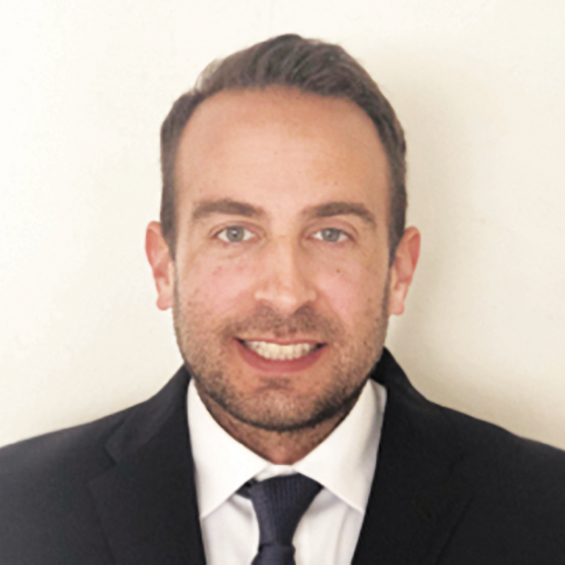
Thomas O’Hagan DuPree
Senior consultant, Deloitte
Thomas O’Hagan DuPree, an MBA@Rice student, passed away Nov. 19, 2022. He was 37. His classmates remembered how exceptionally bright he was and how he lightened the classroom with subtle jokes. Thomas was originally from Florida and moved to Houston, where he grew his career as a senior consultant at Deloitte, focused on risk and financial advisory. His previous professional experiences included contributions at Phillips 66 and PwC. He was a graduate of Florida State University, with a bachelor’s degree in accounting and finance and a master’s degree in accounting. Thomas was a loving husband with a big heart for his family, including his Great Danes.
You May Also Like
Keep Exploring
Letter from the Editor
“Recently, life led me to Rice Business as this magazine’s new editor-in-chief. Here, I get the best of both worlds: being a small part of the top MBA program in Texas while sharing its stories.”
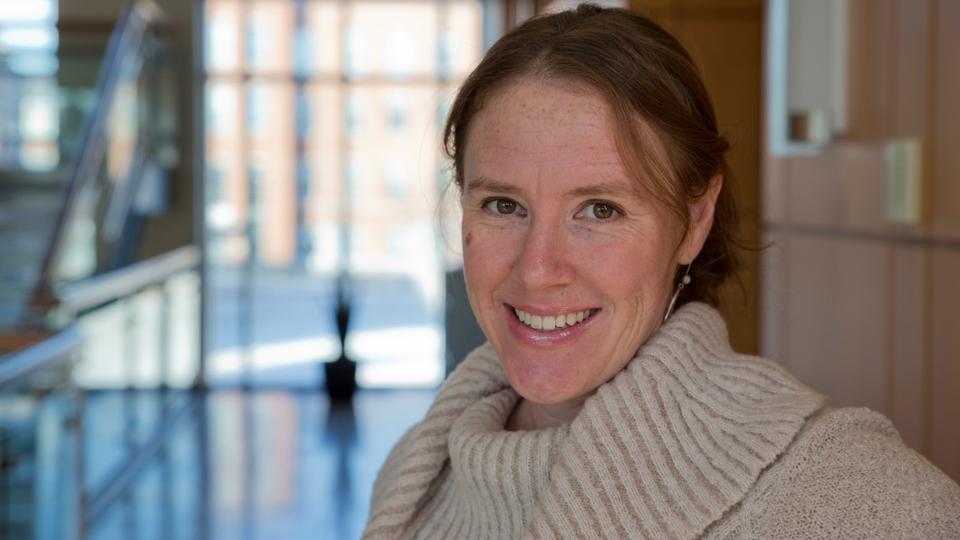
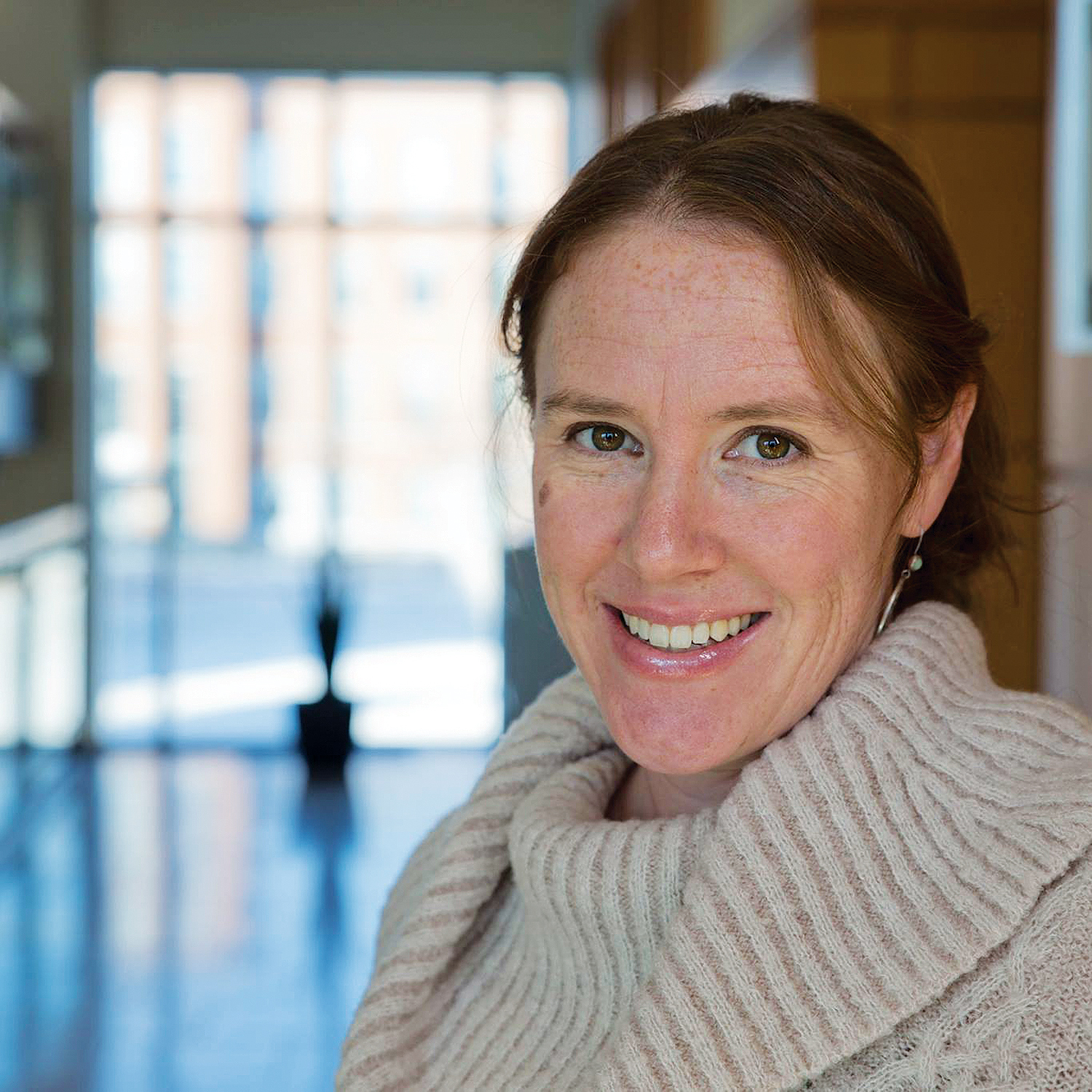
I’ve been known as the odd duck in my family. My three older brothers followed in my Wall Street uncle’s footsteps and headed for careers in business, specifically finance. I remember the moment I declared I would be an English major, studying literature and the creative writing craft. Everyone in my family was apprehensive, but there it was: a degree that likely wouldn’t lead me to Wall Street.
My brothers are all successful in business — and I, somehow, became a successful business owner myself, running a small communications firm for more than a decade while also working for schools like Penn State and Denison University, a small liberal arts school outside of Columbus, Ohio.
It’s funny where life leads you.
Recently, it led me to Rice Business as this magazine’s new editor-in-chief. Here, I get the best of both worlds: being a small part of the top MBA program in Texas while sharing its stories. In this, my first issue, I got a good taste of the work that I’ll be doing — from covering innovative faculty research to exploring the way Rice Business graduates and faculty are tackling some of business’s most difficult issues: the decarbonization of the economy, leadership in a time of political change, supply chain issues as a result of a once-in-a-century pandemic, and an ever-changing workforce. In the process, I also get to know these students and graduates as people with their own motivations, drive and passions. I’m excited to share their stories with you. — Maureen
This is your magazine — and I hope you’ll help us build it. If you know of any graduates, faculty or staff with interesting stories to tell, please reach out and share those stories with us.
Email: maureen.harmon@rice.edu
Keep Exploring
Deans Counsel Podcast - Peter Rodriguez on Launching Large Scale Programs
In this Deans Counsel podcast episode, Rice Business Dean Peter Rodriguez shares his views and experience on the power of conviction, dealing with cultural shifts in student dynamics and more.
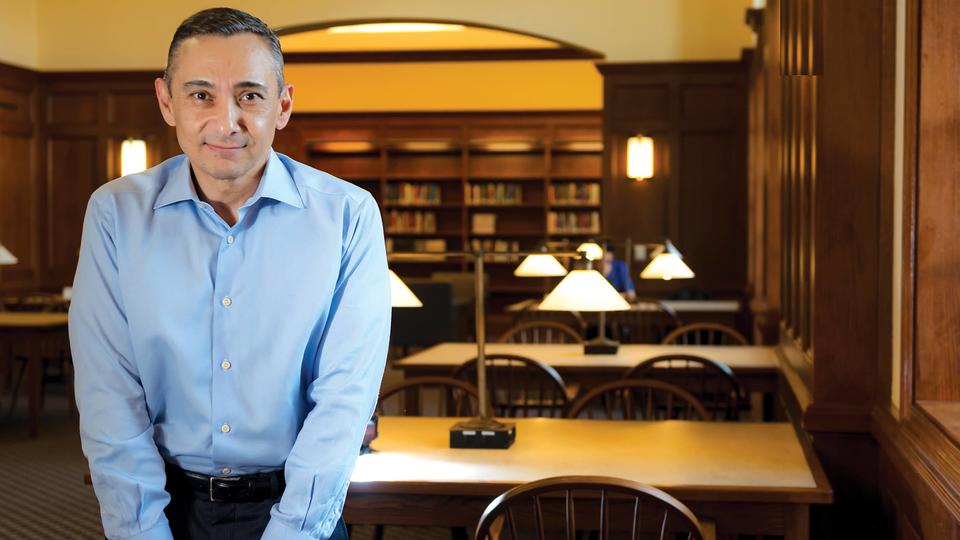
10+ can't-miss Houston business and innovation events for April
On April 11, join Professor Yael Hochberg as she discusses the challenges in commercializing university research discoveries. Then join Liu Idea Lab for Innovation and Entrepreneurship at the H. Albert Napier Rice Launch Challenge (NRLC) Championships on April 19.
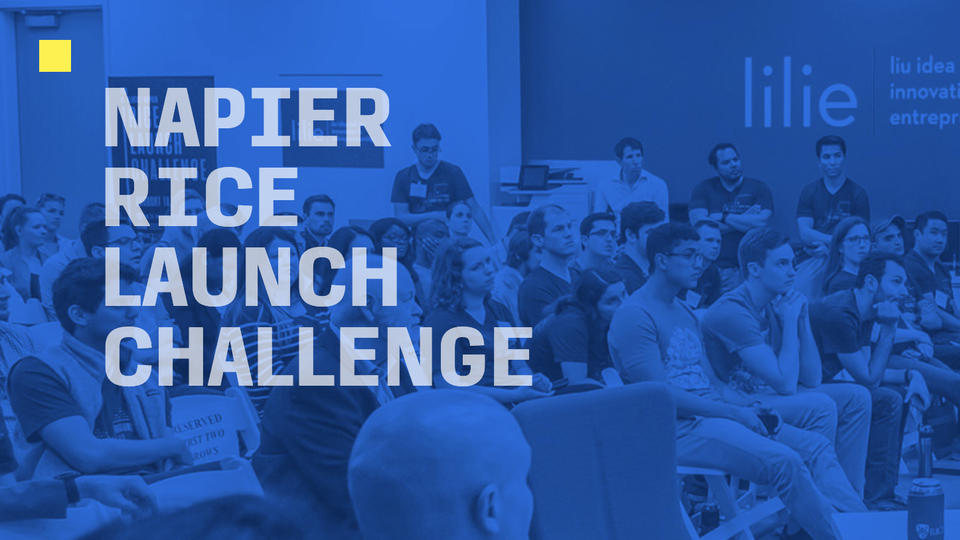
Ashley Ward
Meet Ashley Ward, Full-Time MBA '24
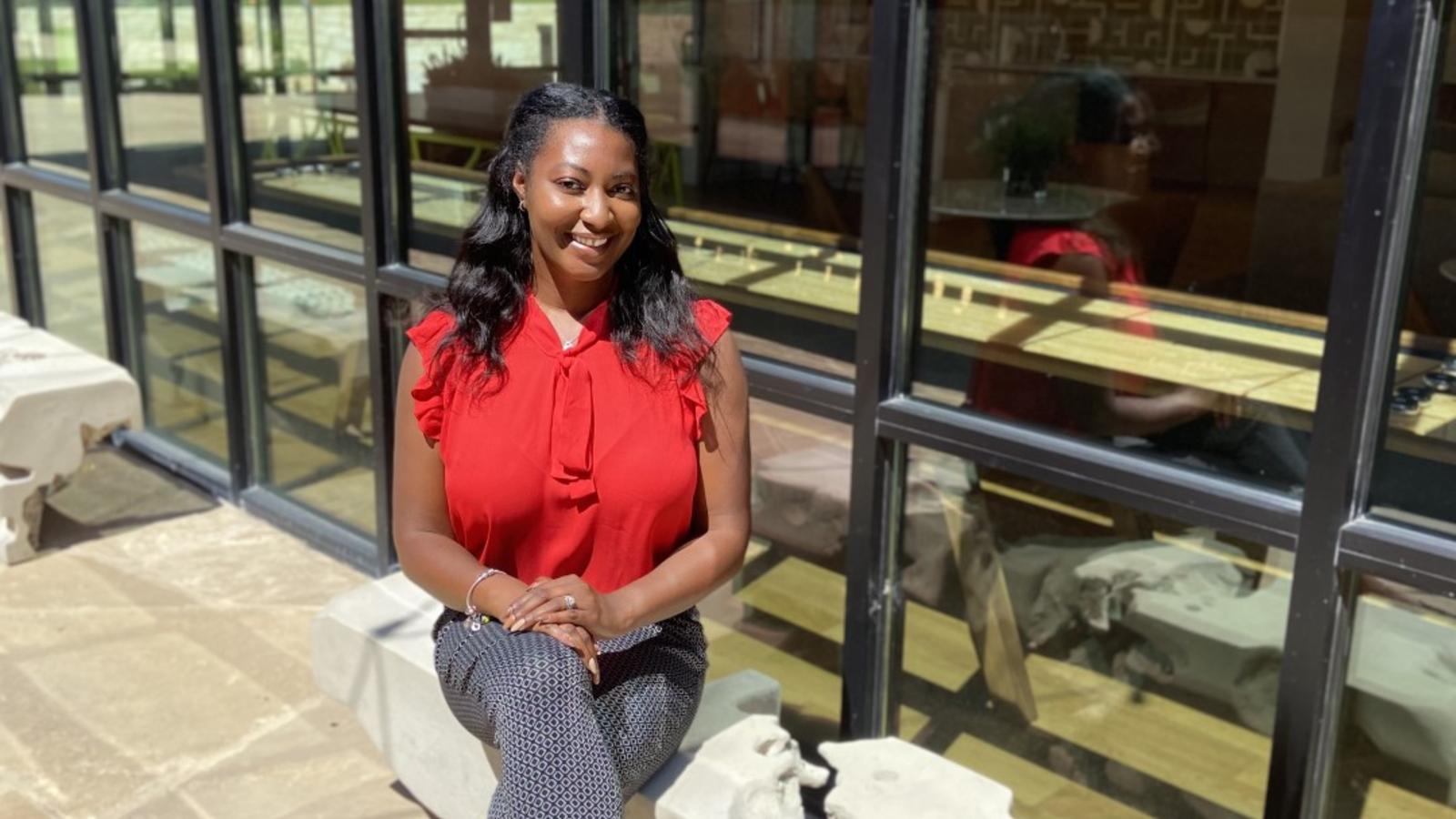
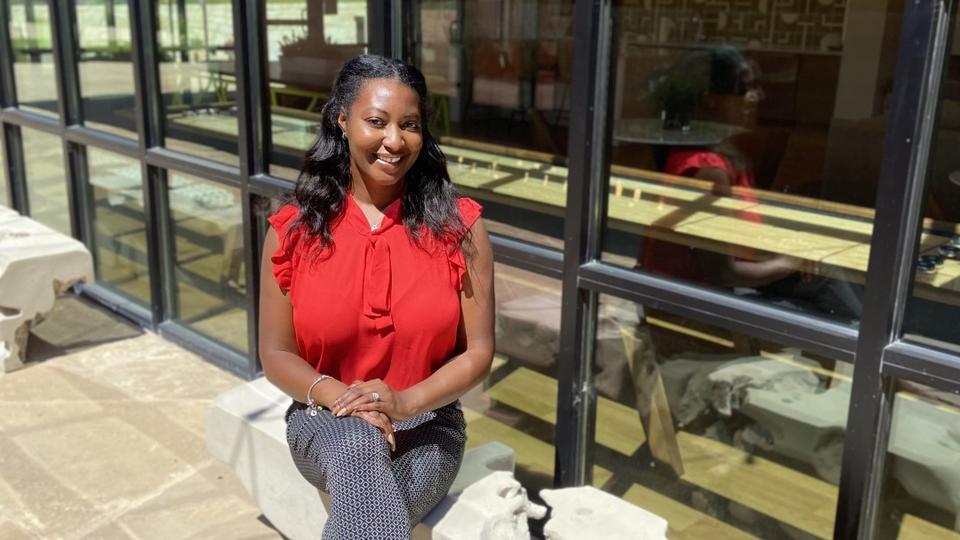
What was your pre-MBA industry and function?
Higher Education, Student Organization Accounts Services Lead at the University of Michigan
What is your internship?
I signed with Amazon as a senior marketing manager. Post-MBA, I'd like to work in product marketing management in technology
Why did you want to pursue your MBA? Why did you choose Rice Business?
I wanted to pursue my MBA because I knew the vision that I wanted for my life, and that could only be achieved by obtaining an MBA. Business school provides a basis of knowledge that allows you to adapt to a changing marketplace, understand best management practices, and make decisions in the face of ambiguity. I wanted to utilize my communications background and pivot to a career that I have always been curious about, which is technology. By doing so, I am able to dive deeper into user experience, marketing research, and have hands-on experience in product management work, but in a classroom setting. I have also always had an interest in entrepreneurship and wanted to explore and learn the fundamentals of starting my own business. Careers in general and small business ownership, in particular, can be full of volatility, and having sound decision-making frameworks provides the skills needed to thrive.
I chose Rice specifically because my sorority sister, Victoria Hills, was a current student who shared many of her great experiences at Rice with me. As a prospective student, I knew it was important to feel a sense of belonging, no matter the school. To say I felt a sense of belonging at Rice would be an understatement. Every time I met a current student or attended an event, everyone treated me as if I were already admitted. I received phone calls from admissions officers who genuinely took an interest in not only my educational background but my personality holistically. I knew early on that Rice is where I needed to attend business school because I wanted this journey to be one taken with intentionality. I love the small cohorts, engaged alumni and the culture of doing it together.
What was your favorite memory or experience from your time at Rice?
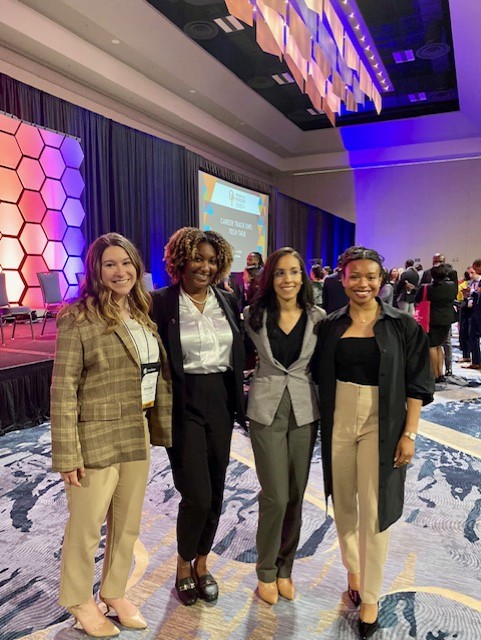
My favorite experience so far was being able to attend the orientation program as a Consortium Fellow and being able to bond with my classmates before school started, as well as land my internship before even taking a course.
What does it mean to you to be a woman in business?
Being a woman in business for me means that you are constantly learning, growing, empowering, and then building up other women. Women have so much power and influence in the world and should not be afraid to disrupt the status quo. When we do that, we show other women that stereotypical barriers can be knocked down. There are seats at the table for all of us, and it starts with advocating for your sister(s).
What do you think organizations should do better to build a diverse, equitable and inclusive organizations?
Building a diverse, equitable and inclusive organization requires effort from all levels of the organization. The most important things to me are recognizing and addressing bias. When organizations are aware of their unconscious biases and take steps to eliminate them from various practices, it creates a more inclusive environment. I also believe organizations must foster a culture of inclusivity. This can be as simple as implementing DEI workshops for people to openly share their experiences/fellowship or even celebrate cultural differences. Lastly, an organization should hold its leadership accountable to not only recruiting diverse talent but making sure they have the tools and resources needed to be successful.
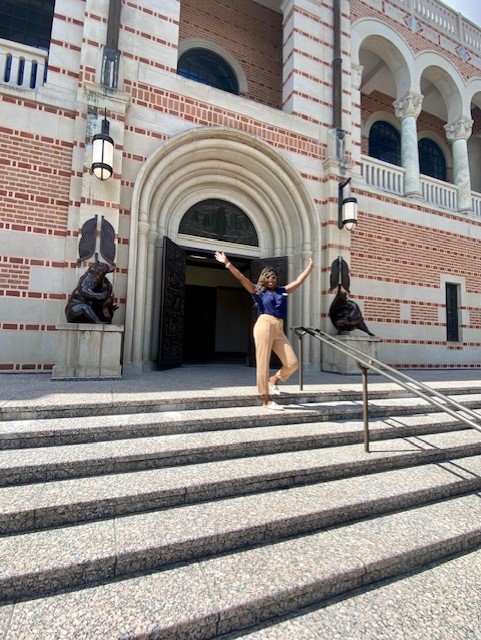
What suggestions do you have for working with allies in the workplace or at school?
My suggestion for working with allies in school is to be vulnerable and show genuine compassion and curiosity about the lives of the people with whom you interact. Everyone wants to be an expert at everything, and it often prevents learning. When you take the opportunity to get to know someone else, so much learning takes place, and you are able to build new relationships; that requires being open and approachable.
What advice would you give prospective students who are considering an MBA?
I would tell prospective students to not be afraid to apply, to take a leap of faith and invest in your future. Considering an (FT) MBA is scary because you are leaving your job, disrupting your family norm and potentially moving to a new city. This is the one opportunity that you will get to do something challenging while pivoting careers. Fully commit and immerse yourself in the experience and network as much as possible because you never know what connections can change your life. The MBA is about networking and if you aren’t networking, you are doing it wrong.
Interested in Rice Business?
Five Tips for Moving to the U.S. as an International MBA Student
Rice Business attracts top global talent. Five international MBA students share advice on navigating the exciting but daunting transition.
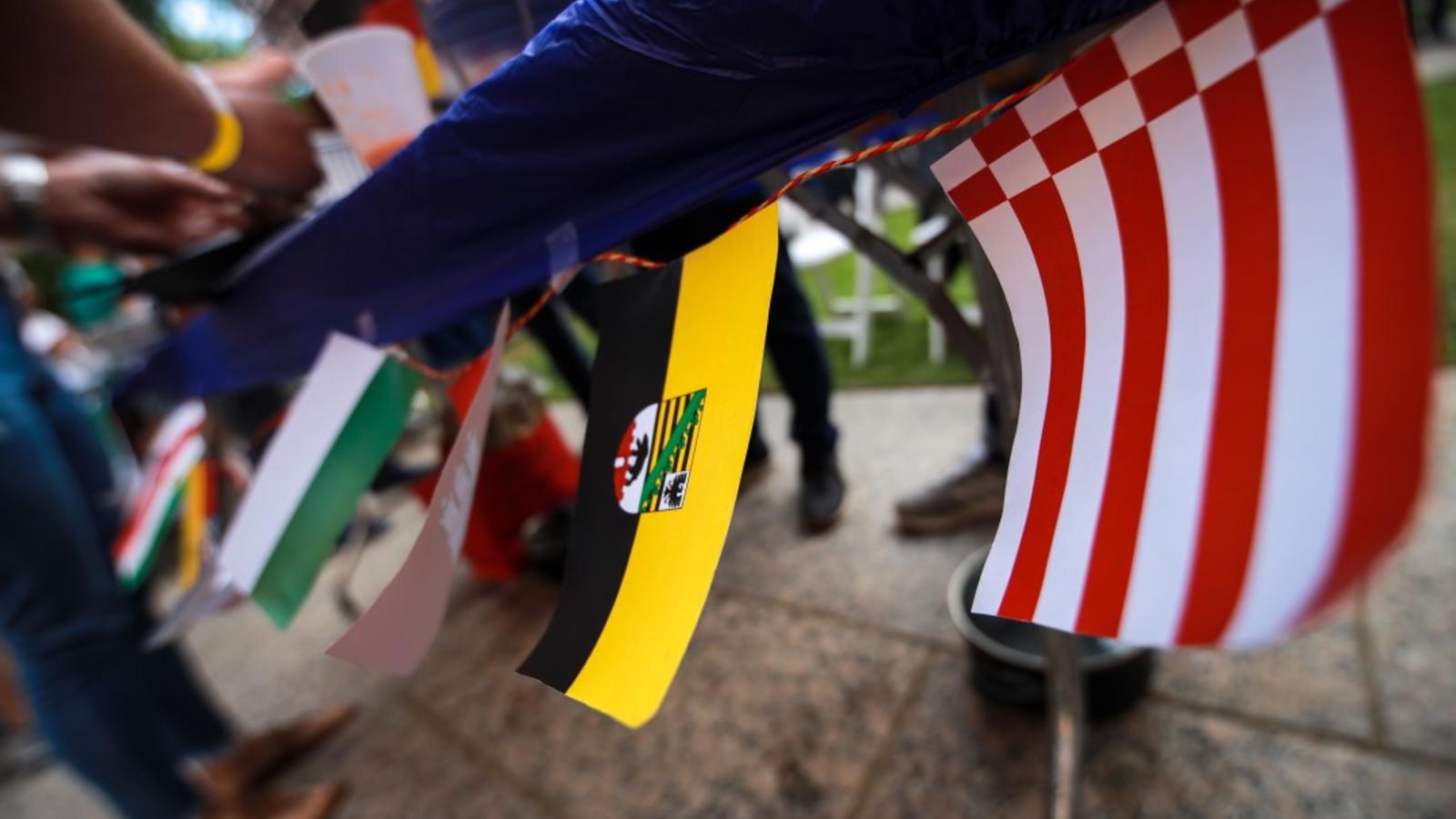
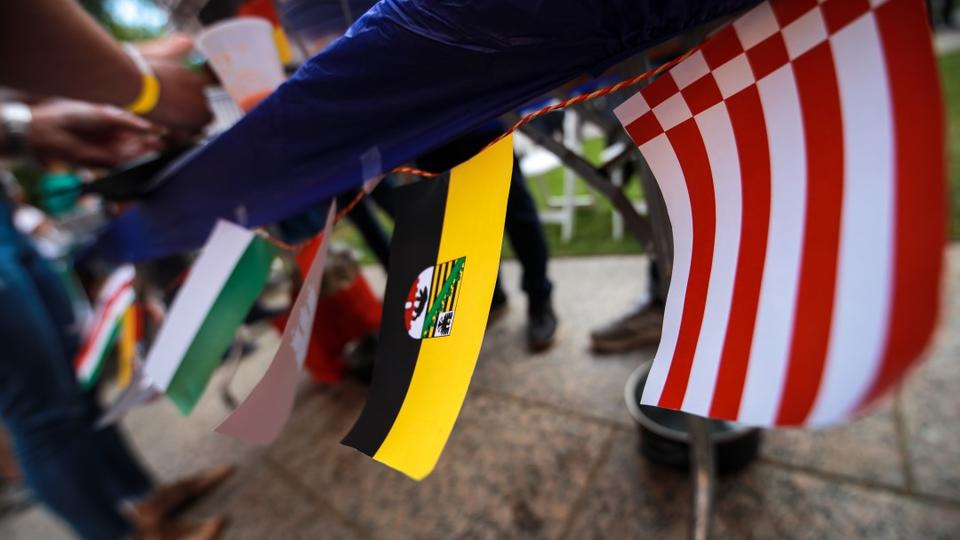
As one of the top-ranked MBA programs in the country, Rice Business attracts students from around the world seeking to pursue an MBA in the U.S. The process of starting a new adventure in the U.S. is both thrilling and stressful. We asked full-time MBA students from Colombia, Honduras, India, Nigeria and South Korea what advice they have for settling in Houston.
Here is what they shared:
1. Be proactive about connecting with students and alumni.
International MBA students and alumni can share valuable tips for success and help you recognize key cultural differences between the U.S. and your home country. Sanober Hussain (’24, India) wishes she’d known how useful LinkedIn would be before arriving in the U.S. She encourages everyone to establish themselves on that platform, and to build a network of people who can help you transition to life in the states.
Rice staff and student clubs proved to be another valuable support system. “Everyone here wants to help you. In fact, people will give you more than you ask for. That’s part of what makes Rice such an amazing place.” But you must take initiative and ask questions, Sanober says. “For some, asking for assistance will go against your home country’s culture. But in the U.S., you have to get in the habit of reaching out to people you don’t know for informational support.” One last tip: When you meet someone new, ask them, “Who else should I talk to?”
2. Remember: There are no bad questions.
Juno Lee (’24, South Korea) remembers resisting the urge to ask questions during International Launch – a weeklong program organized by the Office of Academic Programs and Student Experience. The program prepares new international students to navigate life and business culture in the U.S. Lee recalls listening to a panel of second-year students about acclimating to Houston. He appreciated their recommendations, but he had certain questions that, in the moment, he was too embarrassed to ask in front of his new peers – questions about banking, taxes and housing. He remembers feeling worried people would judge him for seeming ignorant. Looking back, he understands that no one would have thought badly of him. In fact, most people in the room would have benefited from hearing the answers to his questions. “There’s no such thing as a bad question,” he says, “especially when you are getting settled.” And you can always ask questions privately rather than in a room full of new classmates.
Interested in Rice Business?
3. Prepare for a smooth transition.
The goal for every student is to confidently collect their luggage, pass through the U.S. port of entry, and take transportation to their new home – without incident. But to do that, you'll need to do research and speak to many people months before traveling. For example, transportation from the airport to Rice can take some planning. Most taxis take payment by card rather than cash, and rideshare companies use mobile apps. This represents a potential problem for students who do not yet have a U.S. bank account or cellphone. It's the same approach you'll need to take toward something like a medical emergency. Before coming to Rice, spend time learning American medical terms and do research about what is involved in seeing a doctor.
4. Become an expert in your long-term immigration options.
If you’re attending Rice on a student visa, you’ll need to become familiar with mid- and long-term options for work authorization. As Diana Martinez Pietro (’23, Colombia/Brazil) knows too well, “being an international student means having a layer of legal stress that domestic students are lucky to not worry about.” Diana recommends meeting with a lawyer after arriving in Houston, and speaking with other international students, the Career Development Office (CDO) and the Office of International Students and Scholars (OISS). International students should do research on companies that are willing to sponsor for an H-1B. And, Diana says, everyone should develop an immigration portfolio from the beginning. “Everything you accomplish in work and life can double as an accomplishment for future immigration petitions.” If you’re interested in staying in the U.S. long-term, a lawyer can guide you toward applying for permanent residency. “Planning for these things early on will make you better equipped to navigate the immigration system and become more attractive on the job market.”
5. Come with a purpose.
Like other students we spoke with, José Pacheco (’24, Honduras) has a lot of practical advice for international students – utilities, transportation and networking – and he’s happy to share that with you via LinkedIn! (One important tip is to beware of scams that target international students.) But his final tip is arguably the most important. “You need to ask yourself, ‘What do I want to take away from this program?’” He says, “Of course it’s important to be curious. Be open. Have a growth mindset. But you need to know who you are and what you want to get from this experience.” To practice your sense of purpose, you need to be engaged with the Rice community. There are a lot of volunteer opportunities, and you should “come with the mindset of helping others.” Lastly, José says, “Remember to feel proud and privileged to be part of this program. It’s one of the best in the world.”
You May Also Like
Keep Exploring
Taking DEI Into the Future feat. Amanda Stewart ’08
Season 3, Episode 13
Amanda chats about the benefits of getting an MBA at a smaller school, what has kept her working with passion at Constellation for 15 years, and how her Japanese-American background and the internment camps of WWII are a central part of her family’s history and her commitment to DEI work.
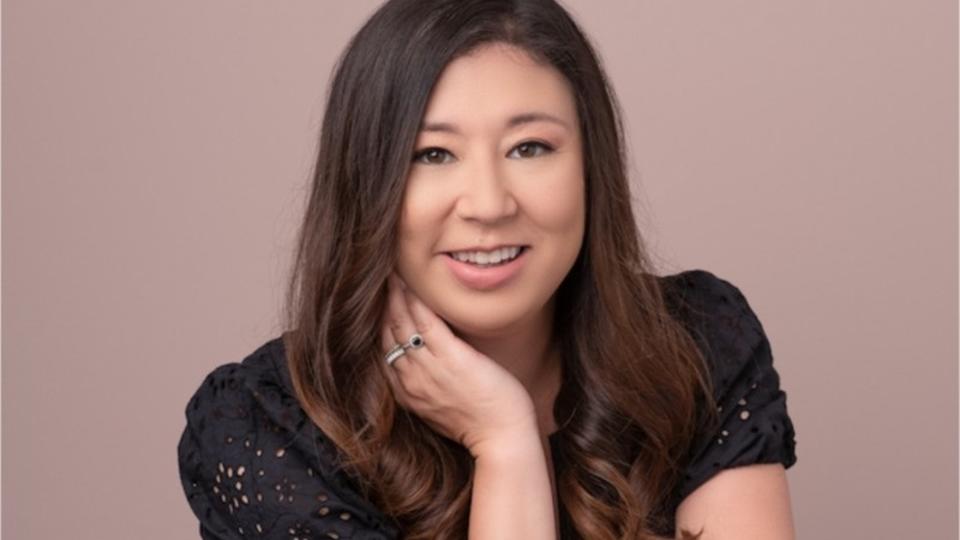
Owl Have You Know
Season 3, Episode 13
Amanda is the vice president of retail operations for Constellation, the nation’s largest producer of carbon-free energy. She sits down with host Scott Gale ‘19 to chat about the benefits of getting an MBA at a smaller school, what has kept her working with passion at Constellation for 15 years, and how her Japanese-American background and the internment camps of WWII are a central part of her family’s history and her commitment to DEI work.
Subscribe to Owl Have You Know on Apple Podcasts, Spotify, Youtube or wherever you find your favorite podcasts.
Episode Transcript
-
[00:00]Intro: Welcome to Owl Have You Know, a podcast from Rice Business. This episode is part of our Flight Path series, where guests share their career journeys and stories of the Rice connections that got them where they are.
[00:14]Scott:I am joined by Amanda Stewart, Full-Time MBA, graduating in 2008. Amanda, welcome to the show.
[00:22]Amanda: Thank you so much, Scott. I'm excited to be here. Thanks so much for having me.
[00:26]Scott: Absolutely. It really is a privilege. I just want to start from, like, an education standpoint. You, you've got a bachelor's degree at UT with a concentration in marketing. Just curious, like, why marketing? Like, what kind of drew you to that major and at that point in your life?
[00:41]Amanda: Thanks, Scott. That was quite a while ago. I graduated from UT in 2002. I grew up in Houston. Most of my family is here in Houston. Went to Austin and love the UT experience. But I will tell you, you're going to hear a theme as we talk about my undergrad and why I went to Rice later and even, you know, my career post Rice. Is this kind of idea of where can I grow? What am I learning? How do I mix it up a little bit, and what do I want to do differently?
So, I did choose, you know, marketing as my undergrad focus. After I left UT, I was at a PR company. So, I was doing publicity for books and authors, calling media outlets. Are you interested in having, you know, this person on as your cast? Here's a great topic for your show or an article that might feature this book that has commentary on, you know, this current event. So, marketing was really where I thought I was headed, and that ended up not being the case later on.
[01:50]Scott: What sort of caused the pivot? Tell us just a bit about what you're working on now and sort of what was that shift from that marketing background to what you're working on today.
[02:00]Amanda: So, like many young professionals in their 20s, my first job out of school at the PR company that I mentioned was fulfilling and rewarding, and I really learned so much in that organization. It was a very small company, maybe like 20 people. When you have 20 people in a small organization, you end up wearing so many different hats.
My main role was doing publicity and contacting the media, but there were instances where I was jumping into sales conversations to help, you know, the one or two sales guys, and one of them was out of the office. Focus on marketing for the organization. I clearly remember having to do some QuickBooks because we had one of our accounting representatives out of the office and not knowing at all what I was doing, but I think that's pretty typical for a small company.
And I think what I realized was I wanted to try something different. I also did not feel like in that small organization, I was already kind of getting the opportunity to play different roles in that organization, and I wanted to see what else was out there. So, I started looking at business schools. I kind of had this idea in mind. Native Houstonian, maybe I didn't want to be back in Houston. Maybe I wanted to try different opportunities, different city, different schools. But I got into Rice.
And as soon as you visit the campus, at least in my opinion, it's impossible not to fall in love with the Rice campus, the Rice community, the business school. And that was probably one of the best decisions I've ever made in my career, is to come back to Houston to do the full-time program at Rice. It was exactly what I needed at that point in my career, where I wasn't really very specific about what I needed. I just knew it was something different, something original and unique. And I needed a little bit of a refresh at that point.
[03:58]Scott: Was it just sort of like your hometown understanding of Rice? Was there something that sort of drew you initially? Were there other schools in consideration at the time or…?
[04:07]Amanda: Yeah, there were definitely other schools in consideration. All my eggs weren't in the Rice basket, but I did have a fellow alumni who was currently attending Rice who suggested, why don't you just come on campus and take a look? And it was really, I think sometimes personal references are the best selling point. So, it was that personal connection of having somebody walk me around campus, show me kind of the building, the admissions office, introduce me to enough people that it was clear to me even in those early visits that Rice was going to offer a very different experience than I'd had in undergrad. UT is an amazing campus, amazing program, but it is very big. You are a little fish in a big sea.
And so, I was really, one of the things that appealed to me about Rice on that kind of, like, personal visage was just the sense of community and the smaller size of the classes, the smaller size of the building, the kind of feeling you got from the staff and other students. That was really kind of the turning point for me. Obviously, there was a hometown connection, but I would actually say that was in my pros and cons column at the age of 26, that was not one of the things that was appealing to me, to come back home. Happy I did it, you know. Twenty years later, I'm like, that was the best decision to be back and close to my family, and it means so much to me now. And this is where we'll call home, you know, forever. But at the moment, mid-twenties, making that decision, that wasn't what appealed to me. It was really the sense of community on campus and just the beautiful kind of experience of being there.
[06:04]Scott: I love that. I want to just sort of step to the next part of your career. What sort of led you to where you work today, Constellation, and some of the things that you're working on and doing there? So, what drew you to the organization, and what's kept you there now for so many years?
[06:22]Amanda: So, I work at Constellation. Constellation was my first role after finishing my MBA at Rice. I am currently the VP of our retail operations team at Constellation, and I have been with the organization over 14 years now. I hit 14 years this summer, so I'm headed into year 15. And my journey with Constellation will continue well beyond 15 years.
When I first finished my MBA, when I was, I was still kind of in a place where if somebody was to ask me, what do you want to do, I don't know that I had as much of a clear career path as many of my fellow students, like in my class at that time. Constellation was offering a rotation program. It isn't something that we are still doing, although I'd love to bring it back at some point in the future. But at that time, we had the opportunity to sit in different parts of the organization, different functional areas of the organization.
What Constellation has given me over the years is really this opportunity to grow new skill sets, to use many of the competencies I got from my MBA. Things like how do you analyze a situation? When there's a lot of gray area and problem solve, how do you kind of look at this situation in a little bit of a different lens and do something to resolve this in sometimes a very creative way? And Constellation, especially in our operations organization, has really afforded me those opportunities to just keep almost owning my fate around how do I want to tackle this? How, as a team, do we want to wrap our arms around this? And that's what's kept me at Constellation. Just…we continue to change, we continue to evolve, but we also have the freedom to, like, decide our own fate in many cases.
I think that was, looking back on when I left Rice, I think that's what I was looking for, is really not so much, this is the functional area that I'm absolutely committed to. This is the industry that I'm absolutely committed to. It was how do I use these skill sets to grow and develop and keep learning, problem-solving, solutioning, like those other kinds of things. I've realized over time are really what get me jazzed and what has kept me with Constellation. So, it was a little bit hard, Scott, to articulate, at the end of my MBA, what I was looking for. But Constellation's appeal to me was that I didn't have to make a decision right away.
[09:10]Scott: I love that. I want to ask a question about, you know, you are passionate about and a champion for DEI – diversity, equity, and inclusion. And would love to just hear a bit about what contributes to that for you. What are sort of, like, the underlying embers and kind of drive and the fire to support that and to make that a central part of what you're solving for?
[09:35]Amanda: Thank you for asking that question because it is an area that I'm very passionate about. I remember when I was at Rice, we had a very diverse class, and it felt very inclusive. But that was 15 years ago, and we weren't really using those words. We weren't using diversity, equity, inclusion as part of, kind of, our normal day-to-day conversation.
Constellation's done amazing embracing what DEI means for corporate America. And as I think about my role as a leader in an organization, I have a sphere of influence. I would never be so arrogant to say I could solve all of the world's problems, especially as it relates to how we create equity, how we create opportunities, how we really create an environment that embraces people for all of their history and background and who they authentically are. But what I can do is influence my own sphere. And today, what that looks like is within my organization.
So, it was, Constellation's commitment to DEI and my own commitment to DEI have nicely intersected in a way that I can play a big role in continuing to create opportunities, continuing to create an inclusive environment.
My real passion for DEI, kind of, comes from my family's history and a little bit of my background. And if you’d give me, kind of, the freedom to share a little bit of that, Scott-
[11:22]Scott: Please.
[11:22]Amanda: … I'd love to share with the audience a little bit more about, kind of, where we come from. So, I am Asian-American, and my family is of Japanese descent.Like many Japanese American families who've been in the United States for several generations, the internment camps of World War II, kind of, intersect with my family's history.
My grandmother and her family were living in California in the ‘40s before the war started. She was born in the United States, along with all five of her siblings. And when the war began, and she was part of 120,000 Japanese-Americans who were forced to leave their homes, she and her family were originally relocated to, basically, a horse truck. So, she, along with a family of seven, lived in what was essentially a horse stall.
They were later moved to an official camp in Poston, Arizona. The Poston Camp became one of the larger internment camps in the United States. She graduated from high school in the camp, and then she and her sister, as part of a work relocation program, they were released early and they were moved to Detroit. These were teenagers who were moving to a new city kind of independently away from their family. And they continued to face discrimination, segregation, and hate as they navigated the new city.
One of the stories we heard, the first thing that happened when they got off the train, is somebody had graffitied on, like, the walls of the train station, “Go home, Japs.” So, it was definitely not a warm and welcome reception leaving the internment camps. Her and her family eventually moved to Texas where she met and married my grandfather. On my grandfather's side of the family, he is also American-born Japanese. But because he lived in Texas, it was a little bit of a different situation, depending on where Japanese-American families were located.
So, unlike families on the West Coast, Texas Japanese families weren't relocated. His father, so my great-grandfather, was arrested by the FBI and hauled, and then later released. I guess you could say that's not as bad as an internment camp, but it's also, you know, not-
[13:48]Scott: It's not nothing.
[13:49]Amanda: … it is still a blemish on our treatment of Japanese Americans during that time frame. My grandfather joined the 442, which is an all-Japanese-American infantry unit, along with many of uncles or uncles in-law. This was a segregated unit of American citizens, segregated for all of the reasons that you can imagine.
So, here's how, kind of, that history intersects with why I'm passionate about DEI. I moved into the role of vice president here at Constellation just earlier this year. And when I accepted the offer, I called my mom, shared the good news with her. But I did ask her the question, what do you think Grandma Okabayashi would say? Do you think this is anything that she could have imagined when she was graduating from high school in an internment camp? Like, is this just beyond what her wildest dreams could have been at that time? And my mom paused and she said, “Well, Amanda,” and you know the way moms will say that. “Well, Amanda,” she said, “I think she'd be really proud of you, but I also think this is exactly what she would've expected.” And that's what really struck me.
As a leader in a huge organization, I do feel a strong sense of accountability for creating a culture that embraces diversity, embraces equity, embraces inclusion. I believe in inclusion. I believe in representation. I didn't even know how important representation was until I saw other people that looked like me in leadership roles. I didn't realize how important representation was until I realized what I was representing to other people, as being the only person in the room that looks like X, Y, Z. You know, those things are things I'm really passionate about.
Constellation has afforded me incredible opportunities for development and challenged, you know, my ability to build business acumen. And I've had amazing mentors over the years. So, continuing to create that experience for my own employees, for the organization with my, within my sphere of influence, that's like a real responsibility to me, but also a very nice privilege.
But the real story behind my passion for DEI, it comes right back to my grandparents. They had very high and very hopeful expectations. They believe that freedom, basic human rights, happiness, and a little success for our families was not only possible, but probable for generations to come. And so, really, when I think about my DEI work and the work we still have left to do, I'm really motivated to do right by them and everything that they did for us.
[16:55]Scott: Thank you, Amanda, for sharing that. Really a powerful background and something for us to learn from. As you work with people in your, in your organization, as you speak with people, what's some of the advice that you give for people? Everyone's sort of at a different stage of their journey. What are some of the things that you have found are helpful as people consider DEI broadly and how to sort of make that a feature of their organizations or bring that sort of front and center?
[17:25]Amanda: I love that you call it a journey because I think if we treat our DEI experiences with a real growth mindset, a real opportunity for us to continue to be open to hearing, open to learning. If we treat DEI like a continuous learning journey, I think there's a lot of benefits and giving each other a little bit of grace for being on different places in that journey, for giving each other a little bit of, “Hey, if you'll be vulnerable, I'll share what my experiences look like, and I'm open to hearing about your experiences.”
In my part of the organization, we are hosting quarterly DEI conversations. I have a team of about 250 people. So, this is conversations, you know, panels, that type of thing, where we are sharing with a very broad audience. Every event that we host internally with my team or corporate event that we're able to attend, I walk away with some new education or learning or experiences that I had never heard about before, that I had never really put myself in somebody else's shoes and having the ability to, one, have that growth mindset. So, you're open to hearing and learning continuously.
And then, two, creating the forums to have those kinds of conversations. I think ultimately leads to, one, you know, just this idea and this concept that we can work together better because we understand each other. I understand where you're coming from. I understand the experiences that are informing the way you get work done.
But also there's this amazing side benefit, that if we understand how to work together better, we will deliver better results for the organization. We can become a high-performing team that delivers for the organization because we've created an environment where everybody's voice matters. You have a totally different experience than mine. If I learn from your experiences and then we use it when we sit around a table to solve a problem, we'll come up with a better answer.
Let me use an analogy, like a system development analogy. You're building a new system, and everybody's sitting around the table. You have somebody that says, I needed to do X, Y, Z for my team. And you have somebody representing your customers from like a customer care organization. They say, “Well, don't forget about the customer, I needed to do this also.” The person who is creating those system requirements will sit back and say, “I didn't think about, you know, what your functional team needed, and I forgot about the customer's going to want this to happen also in this system requirement, let me figure out how to create a solution that does what I was intending, does what you were intending, and does what our customers need also.”
That kind of diversity that sits around a table, not just diversity and ethnicity, but diversity and age and experiences and functional areas, it leads to a better system delivery. If you think about it in that lens and all of the problems you're solving, you come to a better answer. And so, there's this, like, primary goal around let's learn from each other. Let's create an environment where we have community and culture that allows you to bring, you know, that phrase that I use, bring your whole self to work.
But what that really means is you have an opportunity to actively sit at a table, contribute what your experience might create value in solving a problem that delivers better business results. And I like to say that's a nice side benefit, that is not just a side benefit. It is a hugely impactful opportunity that we can harness in corporate America.
[21:43]Scott: Thank you. That's a lot of tangible kind of perspective, actionable. I suspect that it's not always a smooth road, that there's bumps or challenges along the way. Is there sort of an example that jumps to mind where, you know, it wasn't really working the way that you thought and how you approach that and handle those things to steer things back onto track?
[22:04]Amanda: I think that's such a great question, Scott, because we would be remiss in assuming there isn't any resistance in DEI efforts. You know, what I was kind of talking through is these DEI dialogue sessions, when we really started these DEI dialogue sessions with my entire organization was in the summer of 2020, after George Floyd's murder and kind of the social unrest.
We hosted a panel. I was, I had the privilege of being on the panel along with one of my African-American male colleagues. The focus of the panel was Black Lives Matter, and what we talked through was his experiences as a black man in corporate America, my experiences, and how to support him in a moment where we couldn't just, like, live in a bubble about what was happening in the outside world was impacting. You don't just turn off everything when you turn on your computer for work, and it was impacting how it felt to show up and be the only black man in a leadership team or to be the only black man in a room.
And so, we had this very personal conversation. It wasn't about everyone's experiences. It was specifically about his experiences, and how I support him and his experiences by actively listening, learning, not depending on him for all of my education, you know, where there were other opportunities to be educated. That was one of the first DEI dialogue sessions that we did. We've done them every quarter.
The most recent one, we had colleagues who have children with IDDs, so intellectual developmental disabilities, talk about their goals for inclusion, how that affects them and how they get their work done, how that affects their perspective and how they get their work done.
If you think about, like, these wide variety of topics, there's a couple of kinds of resistance. There's, like, the kinds of resistance, and I think this is maybe the kind you would expect. I'm in the majority and I feel excluded from this conversation. I feel like I no longer have value or a purpose because you're not, you know, like are you singling me out because I'm not part of the minority or kind of the outside group? You know, my answer to that is tell me more about it. I want to be an active participant, and anyone who does feel that resistance, not to overcome it, but just that's what inclusion looks like. We hear different perspectives, and we understand them. And we might not agree with them, but we embrace them and we listen. That becomes an opportunity for a partnership. You know, what is your story and how do you bring it forward?
But we also have the other, and maybe this is a little bit more of a subtle type of resistance. This is probably stemming from historically underrepresented groups or what you would consider like the outsider group. I think some of the questions I get from that portion of the population of my organization, is this enough? Have we gone far enough? Is this deep enough to really make a change? We want to ask ourselves those hard questions also. “You're, I, I'm diverse, why are you talking to me about this? Shouldn't you be talking to the non-diverse group of people?” You know, so there's a whole range of potential, you know, to answer your question, a whole range of potential for it not going and not landing or impacting the way that you would help anyone.
And I think if you really believe this is a journey, you really believe that you're learning along the way, then you take that feedback and you say, okay, this is how we'll do it differently. Thanks so much for giving me that feedback. I'm happy to incorporate it in how we continue the conversation, how we continue to create an environment that feels equitable, that feels inclusive, that if you're sitting around the table, everybody has a voice and we're using their valuable input and experiences to deliver what we need to for our customers and our company.
[26:45]Scott: That's really helpful. You know, you've got this deep personal experience to kind of draw from. Are there mentors or other resources that you look to that help to inform and continue evolving your perspective on the topic?
[26:59]Amanda: Absolutely. Absolutely. We've had, at least within Constellation, some amazing guest speakers. Speakers who weren't even, whose only purpose wasn't a DEI topic. I love the connection of Rice here. So, we recently had a keynote speaker named Carla Harris. Carla Harris recently did an event at Rice that I was able to attend also, which is really fun opportunity for me to return to Rice, kind of see her on campus right after we had seen her in, kind of, a forum that was specific to Constellation.
If you guys don't know Carla Harris, She has a couple of books, Lead to Win, Expect to Win. She's an amazing speaker. She was on Wall Street for most of her career. She is a black woman. And as you can imagine, typically, she's the only one in a room. And as you think about her career, and I certainly can't do her justice in paraphrasing her amazing wisdom. But one of the things I remember her talking through in one of her keynote speeches, she uses it as an advantage. If I'm the person that looks like me in the room, they're going to remember me. And that's an advantage.
You know, those kinds of pearls of wisdom, Carla calls them pearls of wisdom, can come from anywhere. And I loved that perspective because it isn't unusual for me to be the only Asian-American woman in a room. Early in my career, it wasn't unusual for me to be the only woman in a meeting or in a room. And Carla's perspective, like, use that as an advantage if you're the only one that looks like you in a room was, you know, something that I took away from seeing her in multiple forums.
There are so many other positive mentors around how to have good DEI conversations and then how to make them actionable, how to really impact and create change.
[29:10]Scott: I love this. Amanda, this has been a great discussion. I want to just ask sort of, like, what advice would you give to prospective students that are considering a Rice MBA experience?
[29:21]Amanda: The first advice I would give you is go to Rice. It's amazing. It's an amazing program. I can't say enough good things about the experience. You know, for me, the immediate sense of community and camaraderie was something I'll carry through my whole life. I don't, I think back to those two years at Rice as just warm, embracing relationships. It was, it was so relationship-focused. Even some of the subtle things that it took me a little while to realize. Partios, breakfast, endless breakout rooms, those are all subtly designed to help you create relationships and community, and like I said, kind of that camaraderie. So, that was really appealing.
I think the other thing I walked away from Rice with was you feel like you're growing and you're learning the whole two years. You feel like the whole two years, you are just, you know, expanding your capacity for knowledge and skill sets, and that feels so rewarding. But it took me a long time in retrospect to also realize there were a lot of intangible skills that you're getting.
The ability to look at a situation and it might appear on paper, like in one of your cases as a black-and-white situation, and you walk away from it and you say, what am I missing? Where's the gray area in here? And how do I think about this a little bit differently? That is a skill set that is not easy to train in someone. It is not easy to replicate except in that kind of business school environment.
And it was only later in my career that I realized how often I was using that skill set. You've given me two options for whatever problem is facing us in the organization, but I think we should go with solution number three, which, it wasn't on the paper, not black and white. Like, let's add into this gray area and figure out what we can do with this. And for me, that was kind of my biggest takeaway from skills that I learned during my business program. So, circling right back to the first answer, prospective students, my answer is, you should go. You're going to love it. It's amazing.
[32:09]Scott: Amanda, what's next as you sort of look ahead on the horizon, sort of in your career or goals that you've got circled on the calendar into the future?
[32:18]Amanda: I'm 15 years post-MBA. I've been with Constellation that entire time, Scott. I'm not going anywhere. My career with Constellation will continue into the future. And at the point that I make a decision to leave Constellation, it will coincide with a point that I decide I've completed my career. So, that is to say, me and Constellation, we're in the, we're in the long haul together.
I do have a young family. My girls are nine and 11. And you know, one of the bigger challenges for me at this place in my family's life and my career life is just kind of balancing the two of them. How am I available to my kids, but also performing well for my organization and in a new role?
You know, like I said, I was promoted to VP earlier this year. The first year in any job takes a lot of time and a lot more energy than I think the second year or the third year. So, this first year, kind of balancing the two of them, has been a little bit challenging. But as I look at the crystal ball, you know, my work-life balance took a precarious kind of turn, tilted the wrong direction this year. And I think that will kind of even back out in the future.
I'm really excited about where Constellation is headed. I am, it's a privilege to be a part of the organization. And so, for me, it's continuing to move the organization forward, keep up with where it's going. We, in the energy industry, experience a lot of changes. They come quickly and that's what's really exciting to me. And I just can't see a point where I'm getting bored in what I'm doing.
[34:11]Scott: Amanda, thank you so much for sharing your experience and your perspective. It's been an absolute privilege. Thanks for joining us today.
[34:17]Amanda: Thank you so much, Scott, for having us. I love your podcast, Owl Have You Know. It's so much fun to listen to other alumni and what they are doing. Hopefully, I lived up to many of the prestigious guests you had previously, but I really-
[34:31]Scott: Indeed.
[34:32]Amanda: … appreciate the opportunity to be here also.
[34:35]Scott: It was a blast. Thanks, Amanda.
Thanks for listening. This has been Owl Have You Know, a production of Rice Business. You can find more information about our guests, hosts, and announcements on our website, business.rice.edu. Please subscribe and leave a rating wherever you find your favorite podcast. We'd love to hear what you think. The host of Owl Have You know are myself, Scott Gale, and Maya Pomroy.
You May Also Like
Largest intercollegiate student startup competition announces 2023 teams
The 2023 Rice Business Plan Competition (RBPC), hosted by the Rice Alliance for Technology and Entrepreneurship and the Jones Graduate School of Business, will be held on Rice University campus May 11-13.
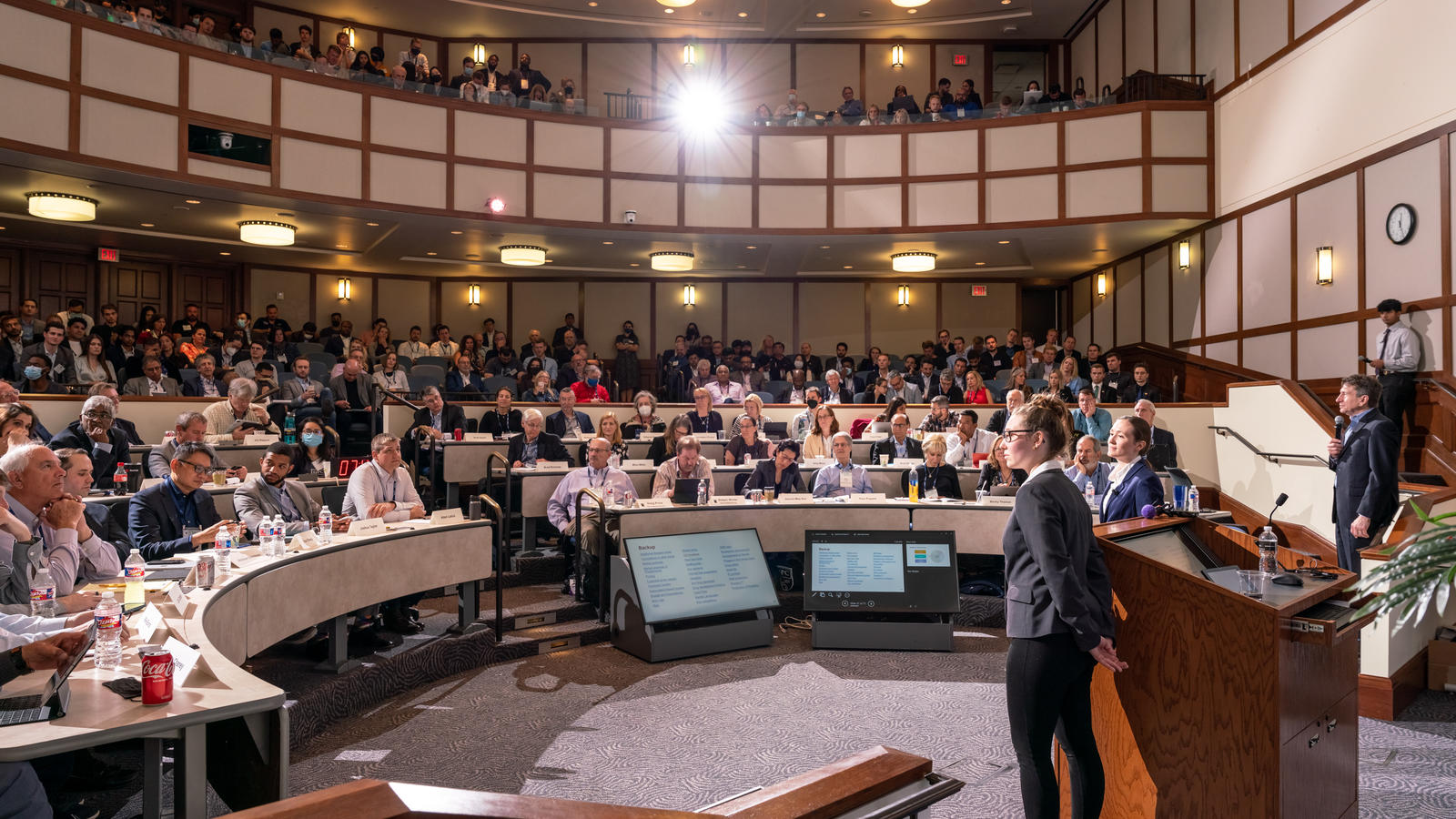

Graduate student-led ventures from around the world will compete for more than $1 million in prizes at Rice Business Plan Competition
The 2023 Rice Business Plan Competition (RBPC), hosted by the Rice Alliance for Technology and Entrepreneurship and the Jones Graduate School of Business, will be held on Rice University campus May 11-13. The competition brings together the most promising student ventures from top universities across the world to compete for prizes in front of active investors, entrepreneurs and the Houston business community.
This year’s startups represent 37 universities from six countries and were chosen from a competitive applicant pool. With a goal of not only competing for cash but also understanding what it takes to secure investment, raise awareness and launch a successful venture, these graduate students will pitch their companies through four rounds and three days of competition in hopes of taking home the grand prize.
The largest number of Rice student startups to-date participated in the RBPC qualifier in hopes of securing the coveted spot to represent the university on the global stage. Rice Alliance awarded a total of $5,000 in cash prizes to the top three teams from the internal qualifier: Sygne Solutions, Neurnano Therapeutics and Tierra Climate, who will represent Rice at the competition.
The RBPC seeks startups that are building solutions with high investment potential. This year’s entries will compete in five categories: energy, cleantech and sustainability; life science and health care solutions; consumer products and services; hard tech; and digital enterprise.
The 2023 startups join a successful group of RBPC alumni. Over the 22 years of the competition, 784 competitors have raised more than $4.6 billion in capital, with more than 50 successful exits and five public companies.
2023 Rice Business Plan Competition invitees:
- Active Surfaces, Massachusetts Institute of Technology
- Adrigo Insights, Saint Mary’s University (Canada)
- AirSeal, Washington University in St. Louis
- Algbio, Yeditepe University (Turkey)
- Arch Pet Food, University of Chicago
- Astria Biosciences, University of Pittsburgh
- Atma Leather, Yale University
- Atop, UCLA
- Biome Future, University of Florida
- BioSens8, Boston University
- BlueVerse, Texas Tech University
- Boardible, Northwestern University
- Boston Quantum, Massachusetts Institute of Technology
- ceres plant protein cereal, Tulane University
- Citrimer, University of Michigan
- Dart Bioscience, University of Oxford (United Kingdom)
- DetoXyFi, Harvard University
- E-Sentience, Duke University
- Edulis Therapeutics, Carnegie Mellon University
- FluxWorks, Texas A&M University
- Integrated Molecular Innovations, Michigan Technological University
- Inzipio, RWTH Aachen University (Germany)
- LoopX AI, University of Waterloo (Canada)
- Magnify Biosciences, Carnegie Mellon University
- MiraHeart, Johns Hopkins University
- MyLÚA, Cornell University
- Outmore Living, University of Texas
- Pathways, Harvard University
- Pediatrica Therapeutics, University of Arkansas
- Perseus Materials, Stanford University
- Pike Robotics, University of Texas
- Quantanx, Arizona State University
- Sheza, San Diego State University
- Skali, Northwestern University
- Sundial Solar Components, University of Utah
- Thryft Ship, University of Georgia
- Tierra Climate, Rice University
- TrashTrap Sustainability Solutions, Visvesvaraya Technological University (India)
- Unchained, North Carolina A&T State University
- Unsmudgeable, Babson College
- Vivicaly, University of Pennsylvania
- Zaymo, Brigham Young University
For more information about the 2023 Rice Business Plan Competition, visit rbpc.rice.edu.
You May Also Like

Rice University’s Jesse H. Jones Graduate School of Business today announced the launch of its Graduate Certificate in Healthcare Management program, a 10-month, credit-bearing professional credential designed for current and aspiring leaders seeking deep expertise in the business of healthcare.
New Ranking Measures ROI At The Top 30 U.S. MBA Programs
A new tool developed by Georgia Tech Scheller College of Business measures the ROI of the top 30 MBA programs. Rice Business is ranked ninth with a salary to tuition ratio of 1.11.

